Machine learning is a part of artificial intelligence. It is a data analysis technique that allows different systems to learn by solving an array of similar problems. In simple words, it is a search for patterns in data and the selection of the best solution without human intervention.
Its application areas are quite diverse, from robotics and IT to marketing, security, healthcare, e-commerce, etc. ML can be integrated into different devices, household appliances, electronics, manufacturing equipment, websites, and mobile apps. The latter significantly benefit from such revolutionary innovation. Machine learning enhances applications, providing a better experience for users, an abundance of new technological solutions for developers, and more valuable insights for business owners.
Pedro Domingos, University of Washington Professor of Computer Science and Engineering, writes in his book, The Master Algorithm, “The greatest benefit of machine learning may ultimately be not what the machines learn but what we learn by teaching them.” If you plan to develop a mobile app with machine learning, this article will help you better understand these benefits.
Thinking about creating a machine learning app but don’t know where to start? The KeyUA team is here for you. Tell us about your project, and be sure to get effective solutions.
Contact UsMobile Apps: What to Expect
The mobile applications market is developing at a remarkable pace. Global mobile app revenues reached $461.7 billion in 2019, and this amount is projected to double by 2023.
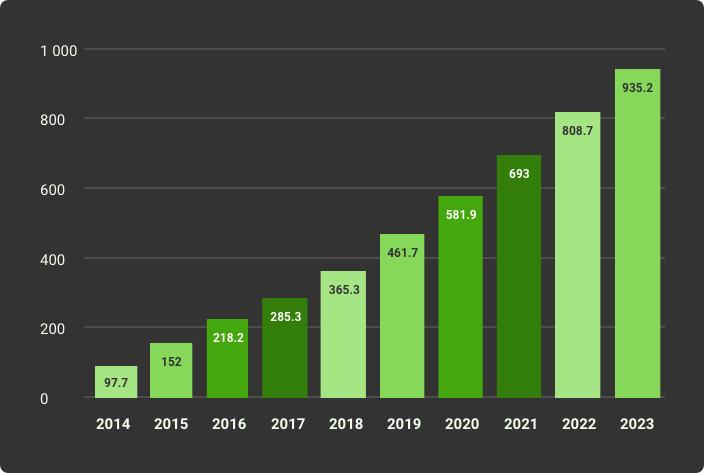
Worldwide mobile app revenues in 2014 to 2023 (in billion U.S. dollars)
Such impressive numbers can be explained by the popularity of this development direction and advancements in technology that help build more creative and informative mobile apps.
Some of today’s innovative features in ML-based mobile app development that will soon become classic includes:
using Augmented and Virtual Reality for gaming and entertainment mobile apps;
applying predictive analytics in UX design;
building cloud-powered applications for better storage and connectivity;
connecting mobile phones and IoT devices;
integrating intelligent virtual assistants;
creating easy-to-understand m-commerce applications; and
developing voice user interfaces.
Out of the 7.8 billion people living on our planet, 3.8 billion use smartphones. With about 80 different apps installed, the average person uses only 9 of them daily. If you want your mobile app to be among these winning 9 and used by the rest 4 billion, you should consider following the trends mentioned above and implementing leading-edge solutions.
Why Companies CreateMachine Learning Apps
ML has fairly quickly been recognized as promising and even revolutionary for mobile app development specializing in face and image recognition, data processing and analysis, classification, forecasting, etc. It is used by companies working in different industries like healthcare, logistics, retail, e-commerce, education, entertainment, etc. Those who want to join the ranks and use machine learning in mobile app development need to understand its benefits.
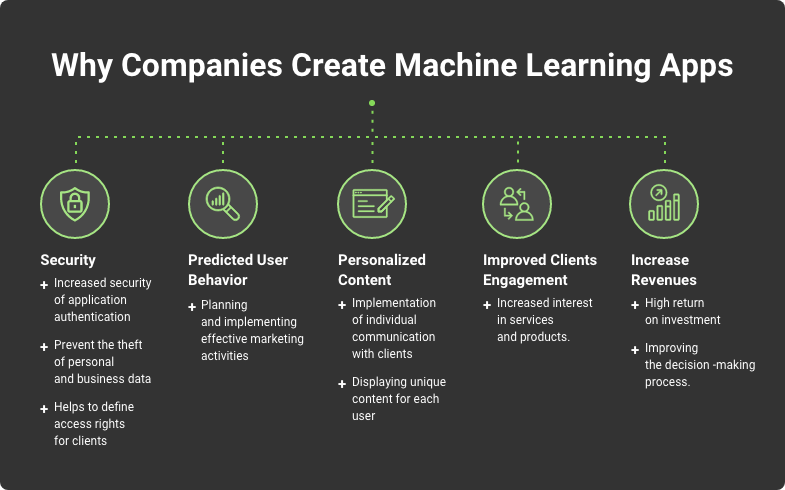
1. Better security
Machine learning in mobile apps simplifies and improves the security of app authentication. Video, audio, and voice recognition allows clients to authenticate a user’s identity using their biometrics. Such data is more difficult to fake, so theft of personal or business data can be prevented. What’s more, machine learning also helps define access rights for clients.
2. Predicted user behavior
If a business understands user behavior in a fast-changing environment, it can better plan and implement its marketing activities. Machine learning algorithms work with large amounts of data, including your users’ age, gender, location, search requests, frequency and intensity of app usage, and find even hidden patterns of customer behavior.
By knowing customer behavior, preferences, and choices, you can create a better experience and improve your strategy to drive higher profits and help your business grow.
3. Personalized content
Successful modern companies strive for personalized communication with their customers. By using machine learning in your mobile app, you’ll get closer to that goal. ML algorithms can analyze user data and behavior, allowing your application to show unique content for each user.
4. Improved clients engagement
The level of user engagement shows how interested a person is in using your app. High user engagement stimulates better marketing engagement, which means that the client becomes more interested in your products or services.
Machine learning in mobile applications can help you engage users using different options such as chatbots, virtual assistants, recommendation services, and anything that creates a wow effect.
5. Increased revenues
All the benefits listed above positively influence user/client experience, which in turn has a direct impact on increasing revenue. Moreover, the return of investments put into machine learning application development is higher because this solution turns data into insights, ensuring a more timely and more accurate decision-making process.
Want to understand your users better and provide them with an exceptional experience? The KeyUA developers’ expertise in machine learning will help you achieve your desired goal.
Get in TouchTypes of Machine Learning Algorithms for iOS and Android Apps
There are different approaches to defining ML algorithm types. We will categorize them according to the degree of human control and intervention.
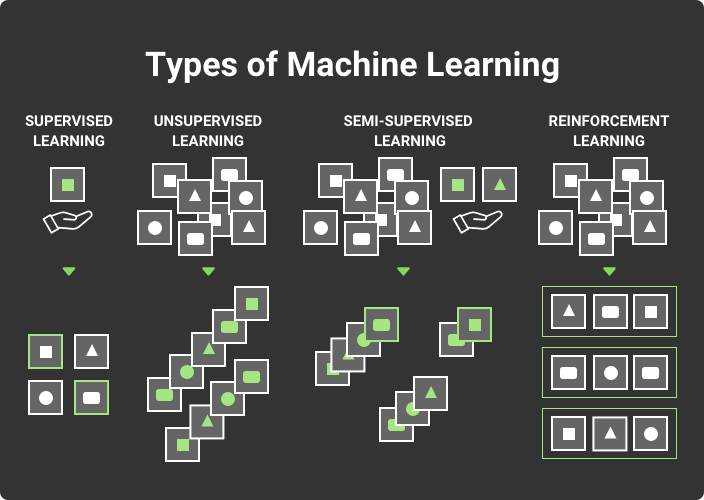
Supervised learning
This type of ML learning uses labeled and marked datasets that consist of inputs and expected results. If AI processes input data but offers different results from what you expected, it needs to correct its calculations. This process will continue until the AI stops producing incorrect results.
Supervised learning is commonly used in applications where historical data predicts likely future events—for example, in healthcare applications, where the task is to understand if the patient is ill with a particular disease, knowing all the medical indicators.
Unsupervised learning
In this case, AI uses information that is not classified, labeled, or marked. Unsupervised learning allows the AI to perform logical data classification independently.
Unsupervised learning can be used in e-commerce apps that have recommendation systems. For example, in a mobile version of an online store, AI can offer customers products that are more likely to interest them, based on an analysis of previous purchases.
Semi-supervised learning
Semi-supervised learning algorithms are between supervised and unsupervised learning. In this case, AI needs to work with very few labeled examples and many unlabeled ones. However, the task is to use all the available data effectively.
This type of machine learning can be used in apps that process image, text, or audio data, as these types of data cannot be easily addressed using standard supervised learning methods.
Reinforcement learning
In this case, there are no correct answers, and the algorithm tries to find the optimal strategy. AI has a set of actions, parameters, and final values. Having defined the rules, the algorithm explores different options and possibilities, tracking and evaluating results. Based on the feedback, it determines which option is the best. It’s a sort of cut-and-try approach where the machine learns from past experiences and changes its methods to achieve the best possible result.
For example, this type of ML algorithm can be used in robotics, where a robot’s navigation system learns to avoid obstacles. It can also be used in logistics, scheduling, teaching the machine to play logic games, etc.
How Mobile Developers Use Machine Learning to Build Apps
Machine learning helps understand user behavior, then uses this understanding to create customized solutions. Mobile app developers integrate ML into their products to create personalized apps for each person. Using and studying the clients’ daily activities, the application analyzes their behavior and learns to use this information. Thus, machine learning allows developers to make their mobile apps more responsive.
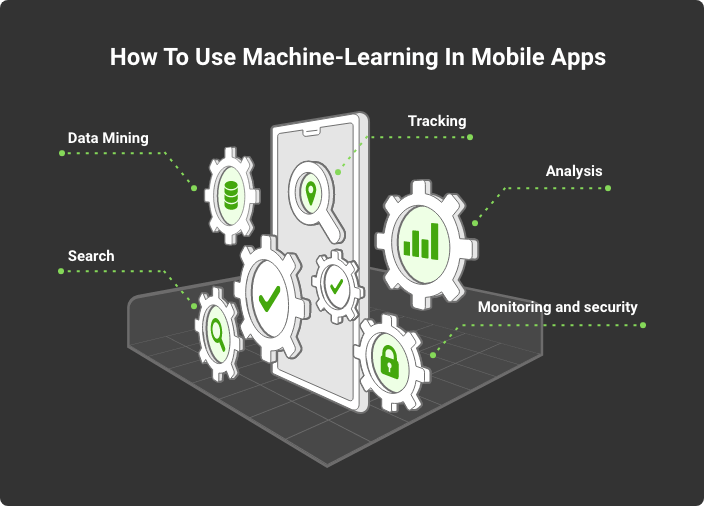
In addition, machine learning helps in performing predictive analytics. It provides quantitative data after analyzing large amounts of information. In some cases, machine learning helps filter out spam and potentially unsafe sites, positively impacting the application user’s security. And of course, some machine learning-based applications can recognize text and understand it.
Let’s dig deeper into different machine learning techniques that can be applied by mobile app developers.
1. Data Mining
Data mining technology is intelligent data processing with mathematical statistics and the theory of databases. Data mining helps solve classification, clustering, description reduction, association, forecasting, and analyzing the deviation of large amounts of data.
One of the best examples of using ML in data mining is a travel app. With this technique, a machine learning algorithm collects user data and classifies it according to different criteria (gender, age, social media profiles, locations visited, etc.). Then you can use this information to update schedules, change tours, add new directions. Thus, it allows you to turn your app into a custom solution.
2. Tracking
It’s difficult to imagine a modern person that doesn’t track something. We track our heart rate and water balance with ML-based trackers. Moreover, we track our financial and banking activities using ML apps. In financial tracking, the algorithm uses the users’ credit and transaction data and offers them the best deals.
And the use of ML in finance goes beyond simple tracking. We recommend you check these 5 Uses of Machine Learning in the Finance and Banking Industry to see how you can use ML in the FinTech field.
3. Analysis
Analyzing data is critical for electronic and mobile commerce because it helps companies better meet their customers’ needs and wants. ML analysis technique helps to analyze the behavior of users and their preferences. Based on this data, your application can recommend goods or offer customers something similar.
4. Search
ML search techniques help improve users’ search results. The application learns to show the most relevant results based on the search request, screen scrolling, and clicks. The program understands the user’s past behavior and history and suggests the most suitable products and search results.
5. Monitoring and security
Machine learning algorithms enable mobile app developers and users to monitor network activity and set alarms that will be triggered in case of fraudulent activity. Moreover, ML allows using voice recognition, biometric, and audiovisual data for authentication to secure users’ data.
With KeyUA, you will be able to give full play to your ML-based mobile app!
Contact UsBenefits of Machine Learning For Developers
Leveraging machine learning in mobile apps helps companies improve sales and provides users with better experiences. However, mobile developers themselves can stand to gain from using this technology in their work.
Here are some benefits for mobile app developers:
More effective app testing
Machine learning helps mobile developers create a customized module for testing ML-based apps. It saves developers time and effort by running exploratory tests to find random behaviors.
The enhanced predictive analytics engine
Machine learning helps developers design predictive analytics engines that consistently offer relevant products to users. Some mobile applications, especially in the e-commerce industry, handle vast amounts of data. In this case, developers can set up algorithms that would update the range of products and services automatically, according to changes in your data pool.
Self-programming
Machine learning helps mobile developers create apps that can self-program. Algorithms can identify patterns and then generate the appropriate coding. Developers decide whether they want this code to be implemented automatically or use it as a suggestion.
Best Apps Using Machine Learning
By correctly applying machine learning in mobile app development, your product can become a hands-down winner, regardless of industry. It is proved by both startups and world-known businesses like Google and Amazon, which are among the top 6 leading companies using machine learning.
To better understand how diverse the use of machine learning for mobile apps can be, we’ve made a list of the best products that use this technology.
Tinder

Tinder helps users find a date. First, the app shows photos of people in random order. Based on the user’s choice (swipe right or swipe left), machine learning algorithms offer photos they are more likely to like. By introducing this feature, the user’s chances of finding a perfect match are higher.
Snapchat

Snapchat is an app where people can share photos and short videos. Snapchat camera filters are the app’s secret weapon. You take a photo, and the application recognizes a face using machine learning algorithms. It is done mainly by analyzing the dark and light areas of the image. Then, using augmented reality, you can add objects or animation to the photo. Integration of machine learning has allowed this app to secure a foothold in the market and compete with the most popular instant messengers, including Facebook.
ImprompDo

ImprompDo is a perfect mobile app for those who hate procrastination but have problems with time management. This app helps you manage your to-do list and sends you push-messages notifying you about the right moment to complete a particular task from your plan using machine learning. The algorithm will work more efficiently if you use the app for some time, allowing it to learn your schedule, plans, visited locations, etc.
Dango

Have you ever had problems finding the most suitable emoji? With Dango’s machine learning algorithm, it’s not an issue anymore. Dango recognizes and understands your message’s text and, based on what you write, predicts and suggests the most suitable emojis, stickers, and GIFs. It also serves as an assistant that can integrate with other messengers you already use.
Replika

Replika is an ML-based chatbot that is programmed to be your friend and help you when you need it. It’s a friend who is always with you. The more you interact with Replika, the more it resembles you. To do it, the application uses a pattern matching model of machine learning.
Migraine Buddy

Migraine Buddy is a mobile app that helps its users avoid headaches by analyzing their behavior and environmental factors. Users keep a “migraine diary,” describing when and how the headache started, where the pain is concentrated, and what users were doing. Machine learning algorithms can predict forthcoming migraines, analyze the causes, and make recommendations.
Oval Money

Oval Money is a mobile application that helps users save money. Due to the machine learning algorithm, the application analyzes how a person spends money (frequency, amounts, product categories, etc.) and develops a strategy for optimizing personal finances and accumulating savings for every need.
The KeyUA developers know how to create machine learning mobile apps that win users’ favor.
Hire UsWhy Use Machine Learning for Enterprise Apps
The use of machine learning is usually associated with the IT field. However, it is now actively used in enterprise applications as well. Enterprise apps serve as a business tool that assists in different processes, customer relationship management, human resources, accounting, resource planning, etc.
The main goal of enterprise applications is to optimize the company’s performance. Usually, this optimization consists of simplifying collaboration, speeding up the information exchange process, providing sharing access to all the company’s data, etc.
The trend towards switching from traditional enterprise software to an innovative one, which uses machine learning algorithms, is explained by human intervention’s negative effect. It leads to errors, distorted information, and biased interpretations of data entered into the system.
Machine learning provides the right foundation on which businesses can rely. With its integration into enterprise apps, the benefits can go beyond simple optimization and extend into an improved internal operations efficiency and better customer understanding.
1. Smarter business process management
Smart business process management helps company departments work effectively, efficiently, and smoothly. Ultimately, it improves the quality of service provided. Supervised machine learning algorithms can identify valuable data patterns to automate business processes, turning regular BPM tools into intelligent mechanisms.
2. Deeper insights
Making data-driven decisions is crucial for effective business. Machine learning algorithms in enterprise apps can easily process large amounts of data sets and discover insights and patterns, which then can be used to meet the company’s objectives and drive growth.
3. Empowered employees
An enterprise application with built-in machine learning algorithms can automatically analyze and evaluate searches performed by employees. It empowers them by providing relevant and timely information on work-related issues. Thus, improving their productivity and saving time.
4. Immediately identified security breaks
Machine learning helps to analyze and immediately respond to security threats. With predictive analytics tools, it can be done at an early stage. Moreover, the application will learn and identify any subsequent security threats based on all the previous patterns.
5. Better collaboration
Many enterprise applications have built-in collaboration tools. Due to machine learning algorithms, they will perform better and positively influence teams working in different places. For example, you can integrate automatic video, audio, and image recognition, chatbots, or automatic speech translation if you have a multinational team.
Conclusions
The use of machine learning methods is becoming the new normal. Mobile apps are no exception. We live in an era of data mobility, and the volumes of this data are rapidly increasing. Mobile applications require acceleration of information processing, and machine learning is an indispensable tool for productive and high-quality functionality. However, it can be possible only if you know how to use machine learning in mobile app development as efficiently as possible.
The KeyUA experts have extensive experience implementing innovative solutions and developing custom mobile products using cutting edge technology. Due to an individual approach to each client, this team of high-level professionals can create the most effective mobile application for your business and easily integrate any elements of machine learning. Having analyzed your company’s goals, we will offer the most suitable machine learning algorithm for mobile app development that will meet your particular needs.
Let your business reach new heights using machine learning. The KeyUA team will turn any of your wishes into effective technological solutions.
Contact Us



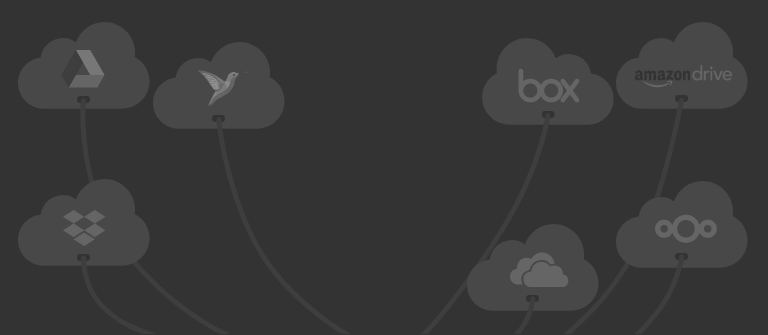



 Unit 1505 124 City Road, London, United Kingdom, EC1V 2NX
Unit 1505 124 City Road, London, United Kingdom, EC1V 2NX

Comments
Leave a comment